A three-year-old jaguar was spotted toying with a discarded plastic bottle in Pantanal wetland in Brazil.

A three-year-old jaguar playing with a plastic bottle in the wild, Pantanal, Brazil. /VCG Photo
A three-year-old jaguar playing with a plastic bottle in the wild, Pantanal, Brazil. /VCG Photo
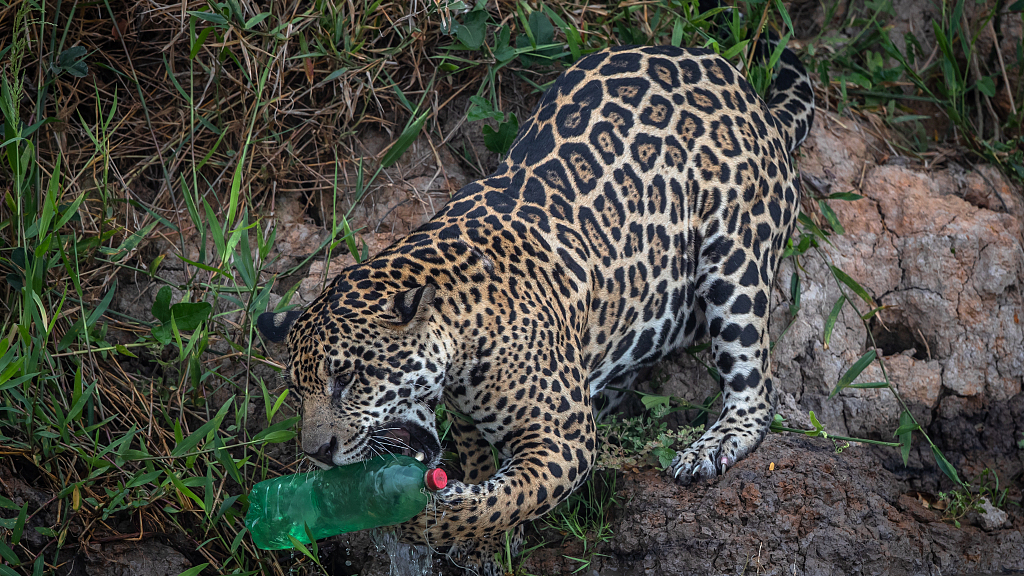
A three-year-old jaguar playing with a plastic bottle in the wild, Pantanal, Brazil. /VCG Photo
A three-year-old jaguar playing with a plastic bottle in the wild, Pantanal, Brazil. /VCG Photo
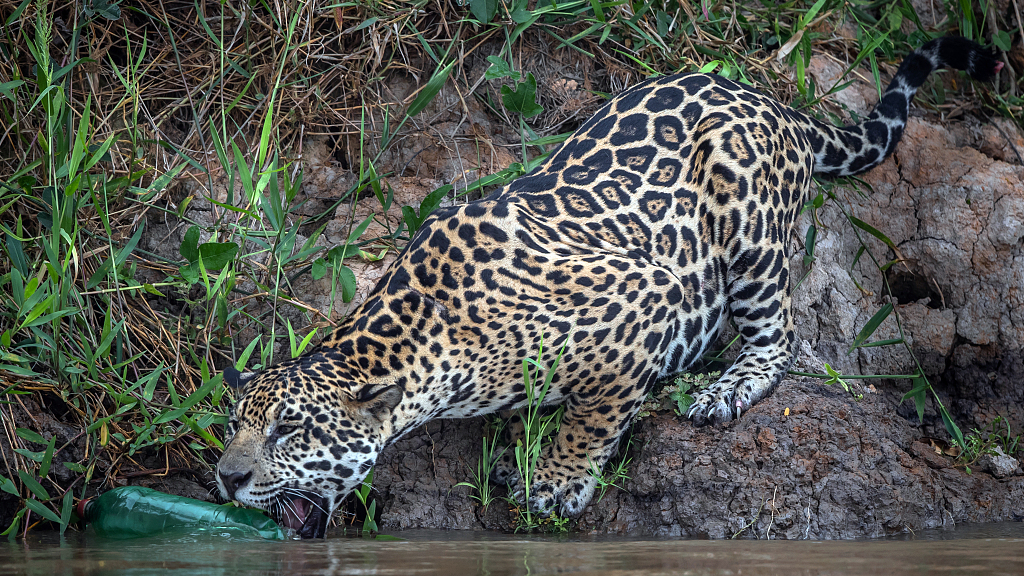
A three-year-old jaguar playing with a plastic bottle in the wild, Pantanal, Brazil. /VCG Photo
A three-year-old jaguar playing with a plastic bottle in the wild, Pantanal, Brazil. /VCG Photo
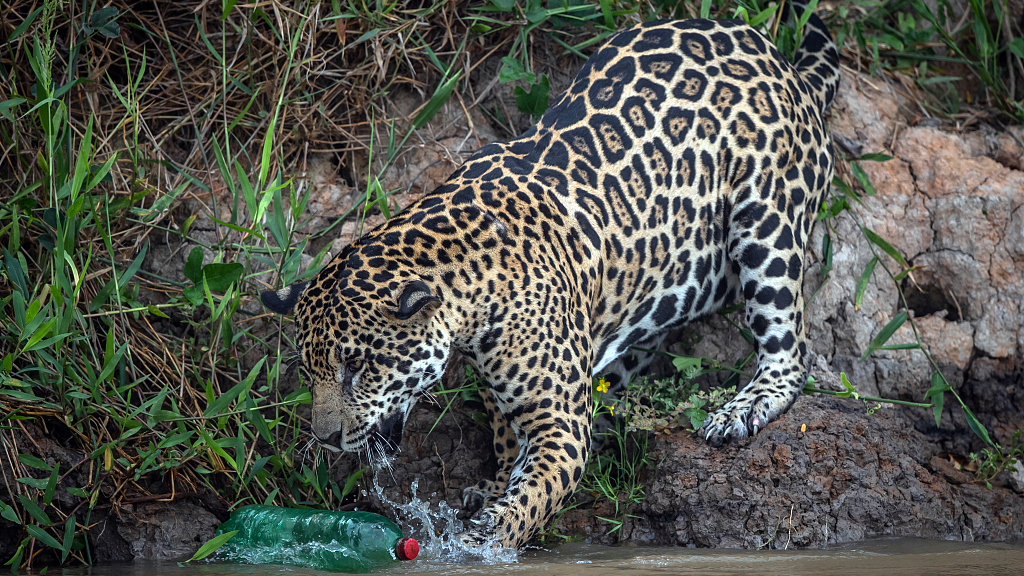
A three-year-old jaguar playing with a plastic bottle in the wild, Pantanal, Brazil. /VCG Photo
A three-year-old jaguar playing with a plastic bottle in the wild, Pantanal, Brazil. /VCG Photo
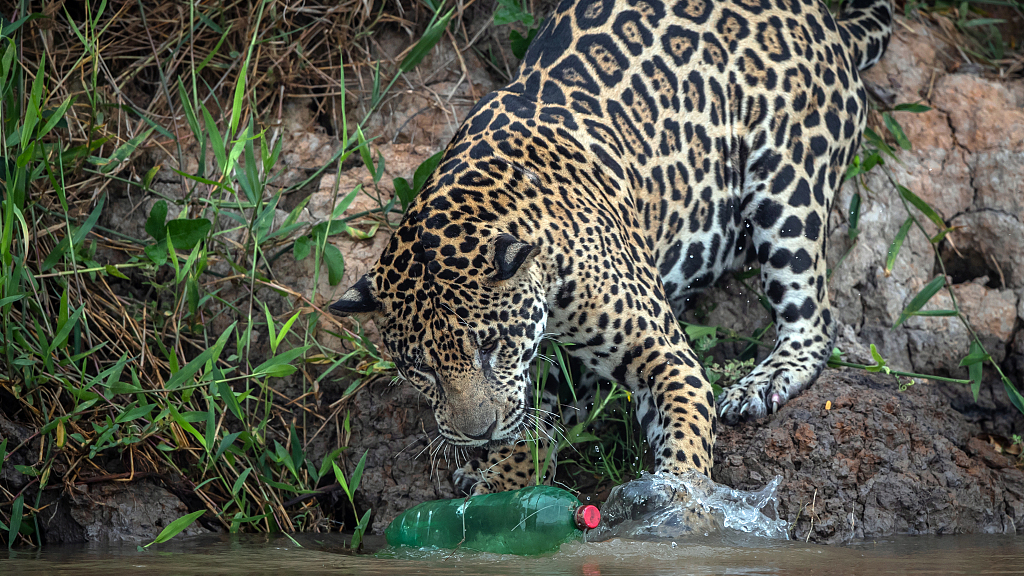
A three-year-old jaguar playing with a plastic bottle in the wild, Pantanal, Brazil. /VCG Photo
A three-year-old jaguar playing with a plastic bottle in the wild, Pantanal, Brazil. /VCG Photo
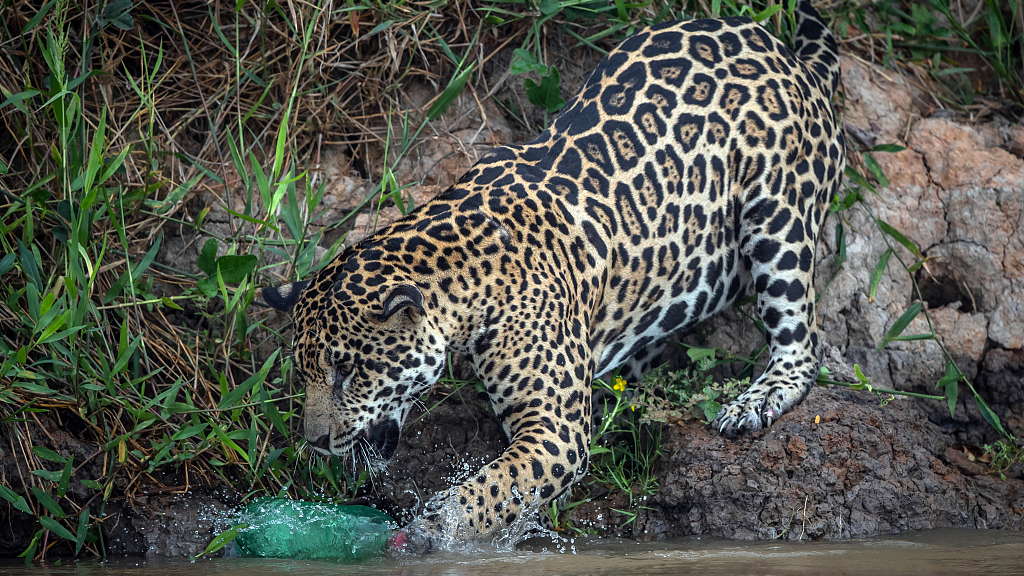
A three-year-old jaguar playing with a plastic bottle in the wild, Pantanal, Brazil. /VCG Photo
A three-year-old jaguar playing with a plastic bottle in the wild, Pantanal, Brazil. /VCG Photo
British wildlife photographer Paul Goldstein captured the shocking scene wherein the jaguar appears to be playing with the bottle, the presence of which is indicative of trash flowing downstream into the wetland with the onset of the rainy season.
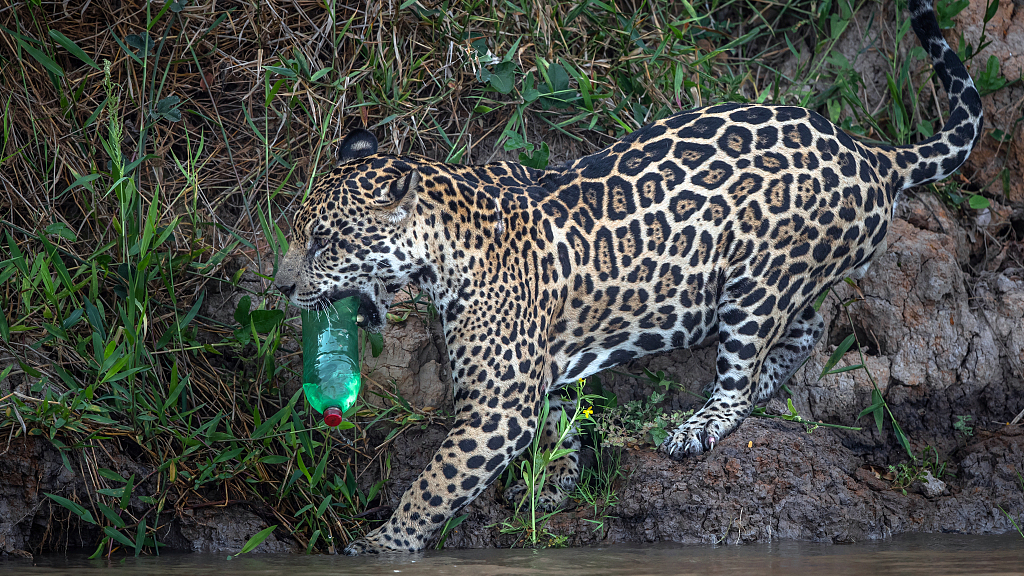
It is not like your cat playing with a sock. /VCG Photo
It is not like your cat playing with a sock. /VCG Photo
As of 2018, about 380 million tons of plastic is produced worldwide each year. From the 1950s till 2018, an estimated 6.3 billion tons of plastic was produced worldwide. A large proportion of this plastic, which is extremely hard to decompose, has been dumped in the natural environment. According to predictions, a foam plastic cup takes 50 years to decompose, a plastic beverage holder takes 400 years, a disposable nappy takes 450 years, and a fishing line takes 600 years to degrade.
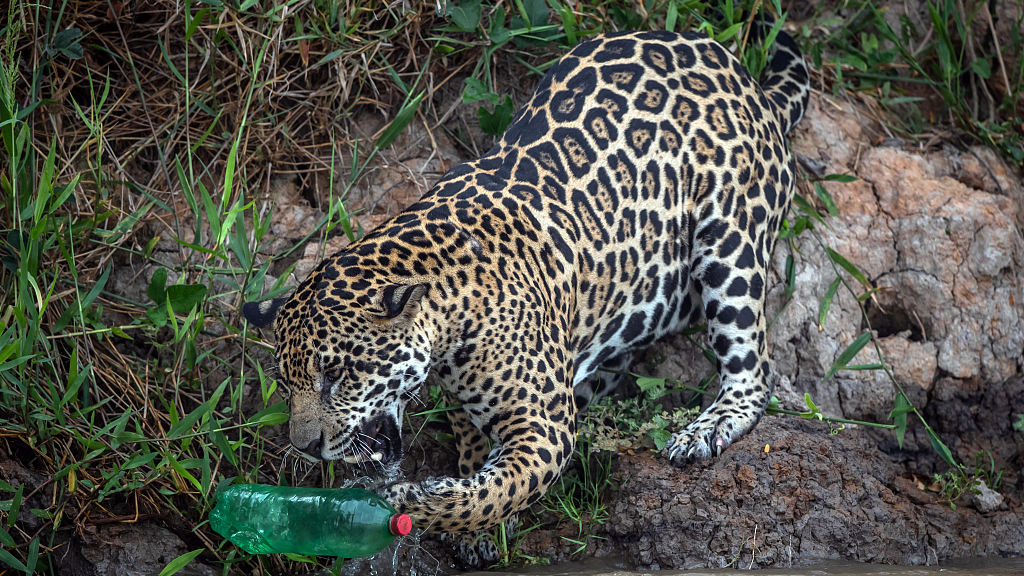
To the photographer's anxiety, the jaguar did not abandon the dangerous "toy."/ VCG Photo
To the photographer's anxiety, the jaguar did not abandon the dangerous "toy."/ VCG Photo
While one may worry about the hazards of plastic waste if ingested, there are many other ways how plastic pollution puts animals in danger. Plastic releases greenhouse gases into air and harmful chemicals into soil and water. In addition, billions of tonnes of plastic floating on the Pacific Ocean even formed two "islands," posing severing threats to marine creatures who may get entangled, suffocated and killed.
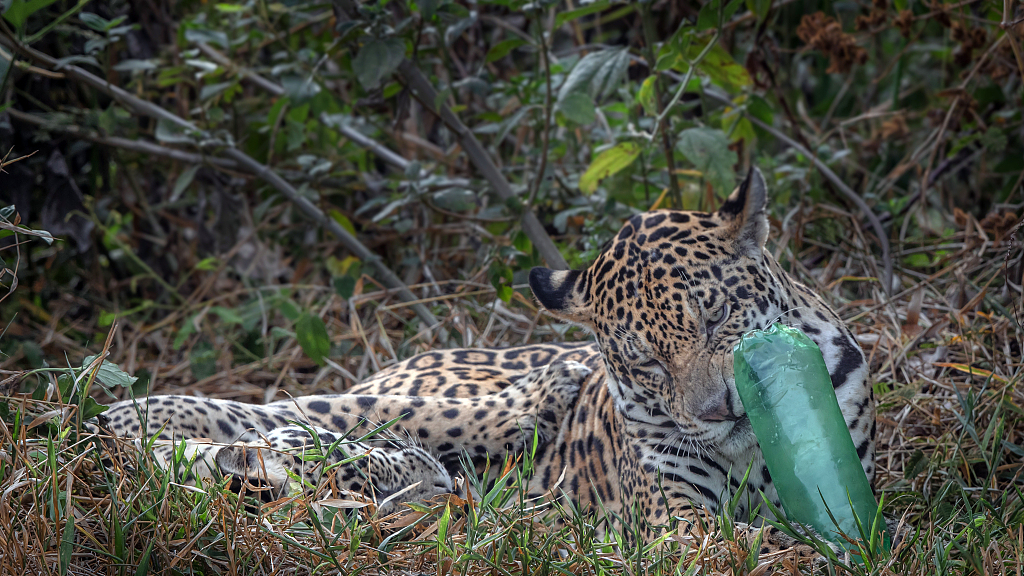
The jaguar just won't let go of his new "toy." /VCG Photo
The jaguar just won't let go of his new "toy." /VCG Photo
The young jaguar may be smart enough not to eat the plastic bottle, but many other animals, such as fish and birds, are not that intelligent. Small fish eat plastic in the ocean and become toxic baits to bigger predators. Records show that a variety of birds have been choked or poisoned by plastic, with some even mistaking it for food and feeding it to their chicks.
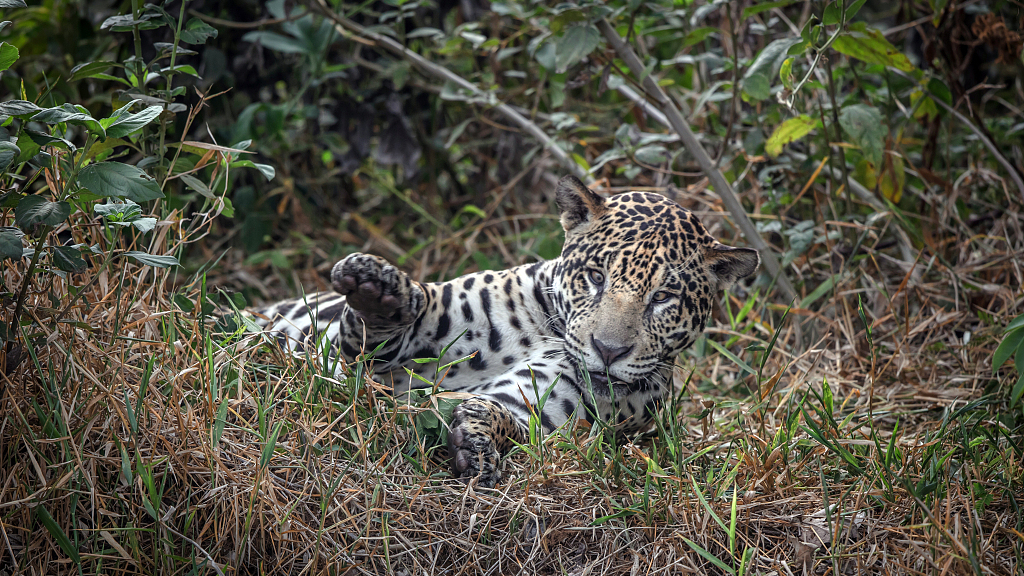
The jaguar is still very young. He does not know how dangerous his new "toy" is. /VCG Photo
The jaguar is still very young. He does not know how dangerous his new "toy" is. /VCG Photo
Concerned over the situation, Goldstein issued an impassioned plea about the use and abuse of plastics: "The actual scenario was distressing but more importantly I hope this photograph becomes a poster child for plastic abuse and its hideous worldwide proliferation. Guiding a dozen people to see jaguars in their own vast wetland back yard is and always will be a thrill, but scenes like this are not. Plastic bags and bottles are a blight. I find it astonishing that countries like Rwanda, Kenya and the staggeringly poor Tanzania have banned them (and will remove them from incoming tourists' bags), yet, in the UK we are still permitting supermarkets to SELL them to us. It is ridiculous as are the penalties for littering. Plastic bottles are recyclable yet they littler vast tracts of the world."
"I hope this image shocks people but more importantly I hope it stirs politicians into action as drastic plastic abuse has reached tipping point. Many people are incredibly conscious of this issue now, making huge steps to cut or eradicate their plastic intake, yet these worthy actions will only really matter when governments stop bottling brave decisions."
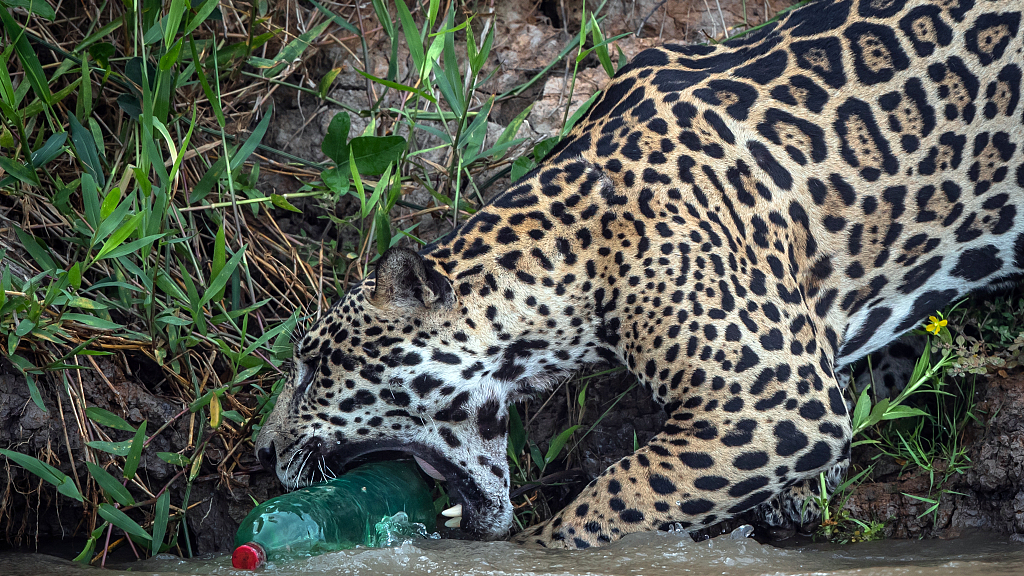
If ingested, plastic waste can cause serious harm to animals. /VCG Photo
If ingested, plastic waste can cause serious harm to animals. /VCG Photo
(Cover image via VCG)
(If you want to contribute and have specific expertise, please contact us at nature@cgtn.com.)